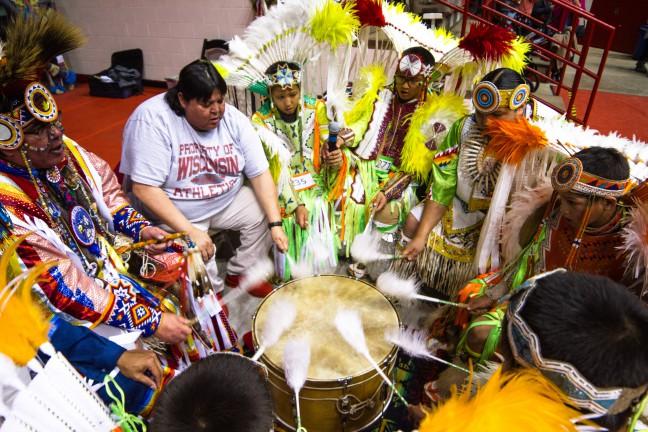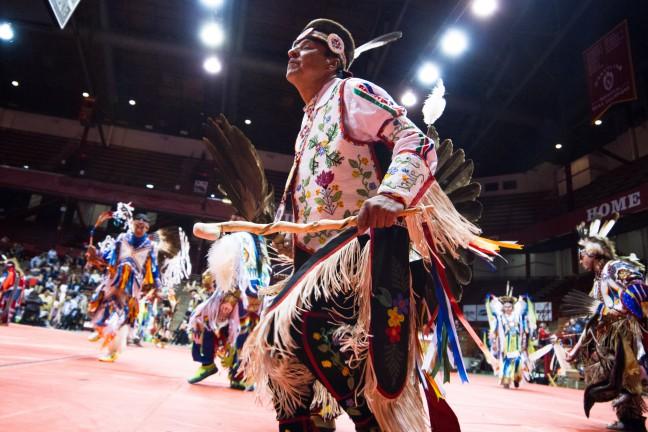Alexa Rae Day is a mixture of Ho-Chunk, Ojibwe, Potawatomi, Odawa and Lakota. She would not exist if it weren’t for the unique gathering of Native American tribes from all different parts of the country where her parents met.
Day’s parents met at a Powwow dance competition, and in following tradition, she continues to participate and brings her five-year-old son, Adrian, to compete as well.
Like many other traveling Powwow competitors, Day came from out-of-state this past weekend for the On Wisconsin Annual Spring Powow, presented by Wunk Sheek at University of Wisconsin’s Field House.
Raised in the Powwow environment, Day has participated in the events her entire life.
“I danced as soon as I walked,” Day said.
Day came from near Travers City, Michigan to attend this year’s spring Powwow. She said while most travelers come from around the Midwest, some dancers come from as far as south as Florida or as far north as parts of Canada. One dancer announced came from Sioux Saint Marie, Ontario.
Drums, jingles and the movement of eagle feather ensembles filled the field house, the smell of Indian Tacos lingering past the booths selling ornate beaded jewelry and dream catchers.
The intricate beading that is found on the outfits of all the dancers are handmade, Day said. She herself began embroidering when she was around 10-years-old and said she handcrafted her beaded moccasins and jewelry adornments.
Sam Pecore, president of Wunk Sheek, said she spends an entire year organizing and planning both the spring Powwow and the events for Native American Heritage Month in November.
“Both take enormous amounts of planning,” Pecore said. “There were 13 events last November.”
Wunk Sheek, composed of seven to 15 attendants on most meeting nights, Pecore said, is responsible for planning the Powwow events. As president, Pecore works to raise funds for the Powwow by writing for grants and donations from various tribes.
Pecore said organizing this event takes a large amount of working around the politics of various Native American issues along with struggles to work with the university.
“We’re lucky we are able to use the Field House now, they begged and pleaded and had numerous meetings with athletics and they gave it to us,” Pecore said.
Previously, the events were held at Dejope Hall, a Lakeshore residence hall which pays tribute to Ho-Chunk Nation.
Pecore said the challenge is compounded by the need to attract competitors to the Powwow. Holding a competition Powwow involves the promise of prize money and awards, Pecore said, which brings in more and better competitors.
The scramble to earn that money even on the day of the Powwow can be difficult, she said, especially as the cost of transportation and lodging for these competitors can also be high for the Wunk Sheek group.
Yet, the Powwow was as lively as it was loud as feathered feet pounded the mats in the Field House Saturday to the drum circles and chants.
“It’s really just a big celebration,” Day said.



